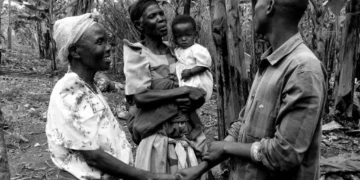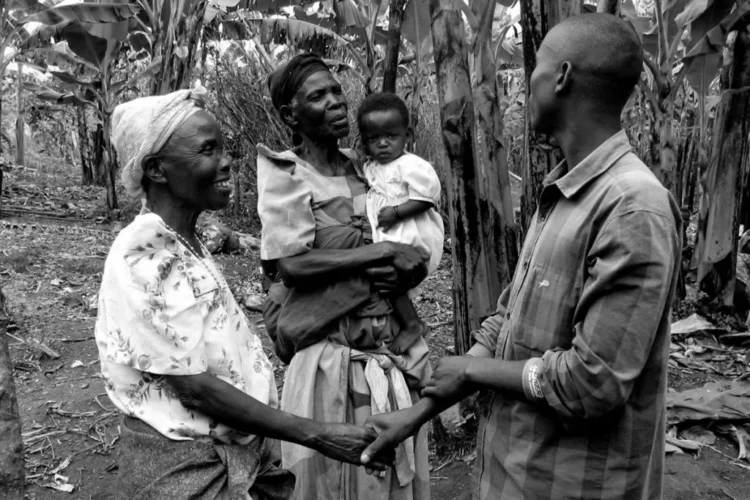By Leonard Kamugisha Akida,
KAMPALA
When you walk along the streets of Kampala or through rural parts of Uganda, one of the most striking cultural habits is the handshake tradition. From boda riders and taxi conductors holding your hand while calling you sister, brother, aunt, or uncle, to shop attendants stretching a welcoming handshake across the counter, and long-time friends or colleagues greeting with warm smiles, the gesture defines Ugandan social life.
A handshake remains a familiar form of greeting and a symbol of empathy, friendship, and connection. However, health experts warn that it also carries the risk of transmitting microbes—minute, invisible organisms found in water, air, soil, and even on the human body, particularly bacteria that cause disease.
While culturally accepted as one of the most elaborate forms of greeting in Uganda, critics argue that the handshake practice is outdated and unhygienic.
“Most of the time, we do not know people’s mannerisms,” said Florence Namboozo Wamala, Woman MP for Sironko District and Minister of State for Karamoja Affairs.

According to Namboozo, many people do not wash their hands thoroughly and unknowingly spread disease-causing bacteria and viruses through handshakes.
“We have people who pick their noses everywhere they are. They sneeze or blow their noses using their hands without washing afterward. You don’t know which germs remain on their hands or in the air,” she noted.
Scientific research supports her concern, showing that contaminated hands can transmit pathogens capable of causing respiratory, urinary, intestinal, skin, and surgical-site infections. Scientists further recommend regular handwashing as a key preventive measure against the spread of such infections.
“People visit washrooms and ignore washing their hands. It’s impolite to ask whether someone did or didn’t, so to be safe, just avoid shaking hands with everyone,” Namboozo added.
The minister made the remarks during the launch of the second phase of the Dettol Hygiene Quest at Four Points Hotel by Sheraton on Wednesday. She called for a ban on handshakes, encouraging Ugandans to adopt alternative forms of greeting to reduce infection risks and improve public health.

“I call upon everyone who values their health to avoid unnecessary handshakes. You can politely make a gesture or bow while greeting someone. You never know where their hands have been,” she said.
Namboozo emphasized that the Ministry of Education recognizes hygiene and sanitation as crucial to children’s health, school attendance, and academic performance. “A healthy learner is a better learner,” she stressed.
Launched in March 2025, the Dettol Hygiene Quest has reached over 750 schools across Ibanda, Rukungiri, Kanungu, Bundibugyo, Rakai, Iganga, and Kamuli districts. More than 1,500 handwashing facilities have been installed, with each school receiving two tanks; one for boys and another for girls. The program has also trained teachers on hygiene and sanitation practices.
Dr. Shamim Nabuuma Kalisa, CEO of Chill Group of Companies, announced that the second phase introduces a new digital innovation; the Dettol Hygiene Quest Chatbot to monitor learner absenteeism and help teachers develop lesson plans.
“This technology can be used by schools in Uganda, Kenya, and Tanzania beyond the Hygiene Quest network. It’s completely free,” said Dr. Nabuuma.
She added that handwashing practices have significantly reduced absenteeism in participating schools.
“As children began washing hands before eating and after using toilets, we saw a drastic decline in diseases and fewer cases of absenteeism,” she explained.
The government pledged to continue supporting the initiative, describing it as key to protecting learners from preventable diseases caused by poor hygiene.

“This technology promotes accountability, enables districts to monitor progress in real time, and helps teachers make data-driven decisions. The government remains committed to supporting this agenda,” Namboozo said, stressing that the program aligns with the country’s National School Health Policy (2023) and the Handwashing in Schools Guidelines (2018), which emphasize hygiene, sanitation, and self-learning spaces as essential for quality education.
The launch coincided with Global Hand Washing Day 2025. Bonface Shaka Onyari, Reckitt Country Director, reaffirmed their commitment to promoting hygiene and protecting families from hygiene-related diseases.
“Access to hygiene is not a privilege. It’s a basic right for every citizen, not only in Uganda but globally,” Onyari said.
“Good hygiene is more than cleanliness. It’s protection, prevention, and empowerment. It keeps children healthy, reduces absenteeism, and enables them to thrive.”
He called upon the government and all stakeholders to unite behind the cause.
“Let’s transform hand washing from a simple act into a life-saving habit, protecting our children and safeguarding Uganda’s future.”








































